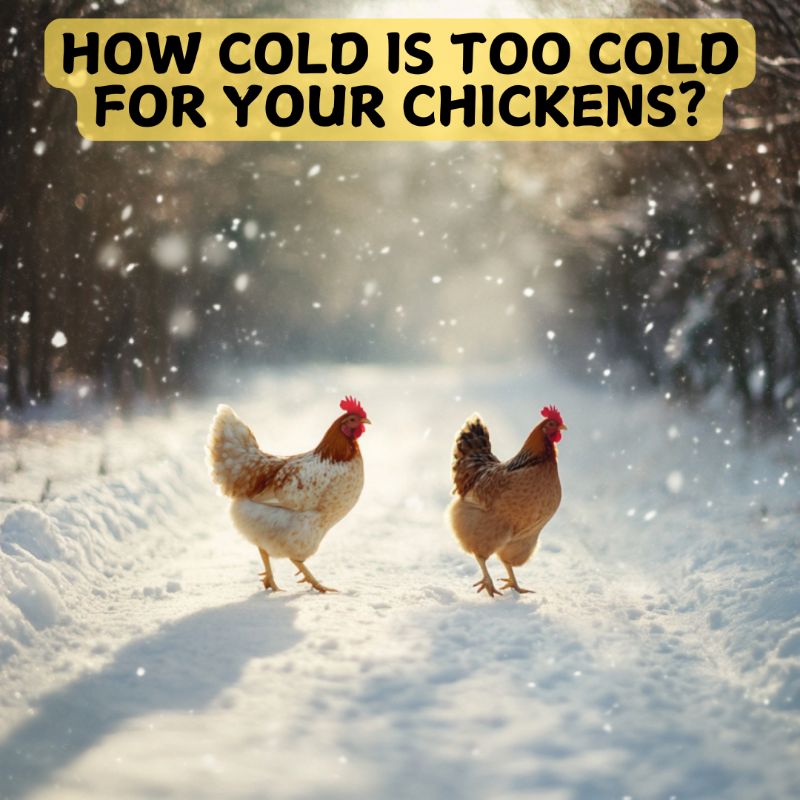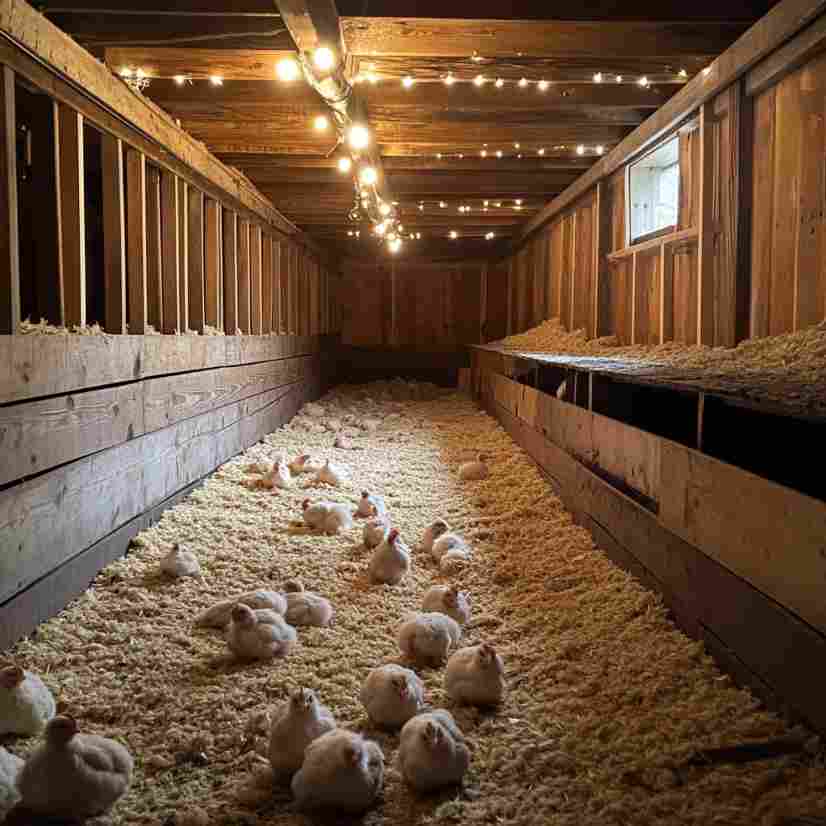How Cold is Too Cold for Your Chickens?

Make sure to like Living Green and Frugally on Facebook, Shop at amazon to help support my site and explore our PINTEREST BOARDS for innovative ways you can become self-sufficient.
Raising chickens in colder climates can be both rewarding and challenging. If you’re new to poultry care or looking to ensure your flock thrives year-round, understanding their cold tolerance is crucial. Chickens are resilient animals, but even they have their limits when temperatures drop below their comfort zone or when they show signs of distress like lethargy and frostbite. So, how cold is too cold for your chickens, and what can you do to keep them comfortable and healthy during the chilly months?
How Cold is Too Cold for Chickens?
Chickens are surprisingly hardy and can withstand temperatures as low as 20°F (-6°C) without significant issues, provided they have access to shelter, food, and water. However, when temperatures dip below 0°F (-18°C), even the hardiest breeds can struggle. Prolonged exposure to extreme cold can lead to frostbite on their combs, wattles, and feet, or even hypothermia in severe cases.
Why Chickens Tolerate Cold Better Than Heat
Chickens have natural insulation thanks to their feathers, which trap warm air close to their bodies. They also huddle together for warmth during cold nights. Cold weather encourages chickens to eat more, which generates internal heat. Providing high-calorie feeds like cracked corn, sunflower seeds, or mealworms can help them maintain their body heat effectively. However, their heat tolerance is lower, making cold easier for them to endure than extreme heat.

Tips for Keeping Your Flock Warm
- Well-Insulated Coop: Ensure your coop is draft-free but ventilated to prevent moisture buildup.
- Bedding: Use deep bedding, like straw or pine shavings, to create insulation.
- Winter Feed: Offer high-calorie treats, like cracked corn, to help chickens generate heat.
- Water Management: Use heated waterers to prevent freezing.
- Perches: Provide wide perches for chickens to cover their toes and reduce frostbite risk.

Common Questions About Chickens and Cold Weather
- Can chickens survive snow? Yes, chickens can handle snow, but they should have a dry, sheltered area to retreat to.
- Do chickens need a heat lamp in winter? Heat lamps are often unnecessary and can pose a fire hazard. If supplemental heat is required, consider safer alternatives like radiant heaters or heating panels designed for coops. Always ensure heat sources are securely installed to avoid accidents. Focus on insulation instead.
- What are the signs of frostbite in chickens? Look for blackened tips on combs or wattles, and swollen or discolored feet. If frostbite occurs, move the affected chicken to a warm area and gently warm the frostbitten parts with a damp cloth. Avoid rubbing, as this can cause further damage.
- How do I know if my chickens are too cold? Chickens will puff up their feathers, huddle, or appear lethargic when cold. Address any signs of distress immediately.
Conclusion
Understanding your chickens’ cold tolerance and taking proactive steps can help them thrive even in the harshest winters. Ensure their coop is draft-free, provide high-calorie winter feeds, and watch for signs of frostbite. These simple measures will keep your flock happy, healthy, and productive. With a bit of preparation, your flock can stay happy, healthy, and productive all year round.